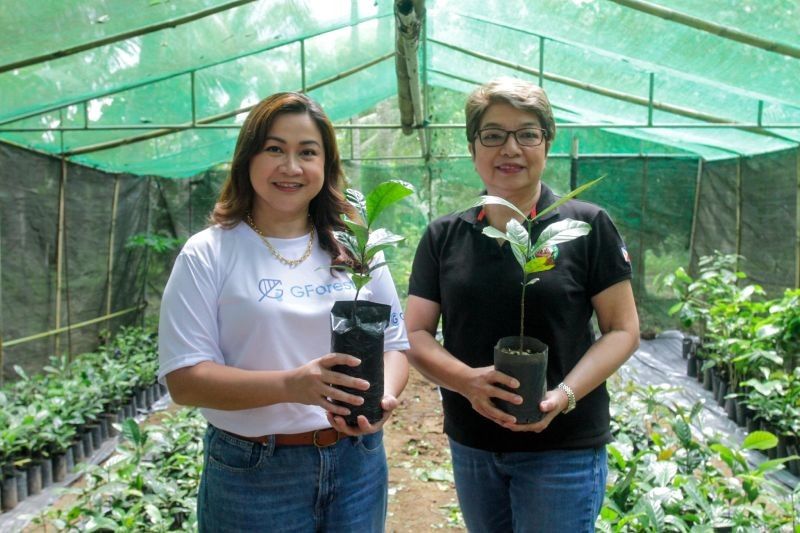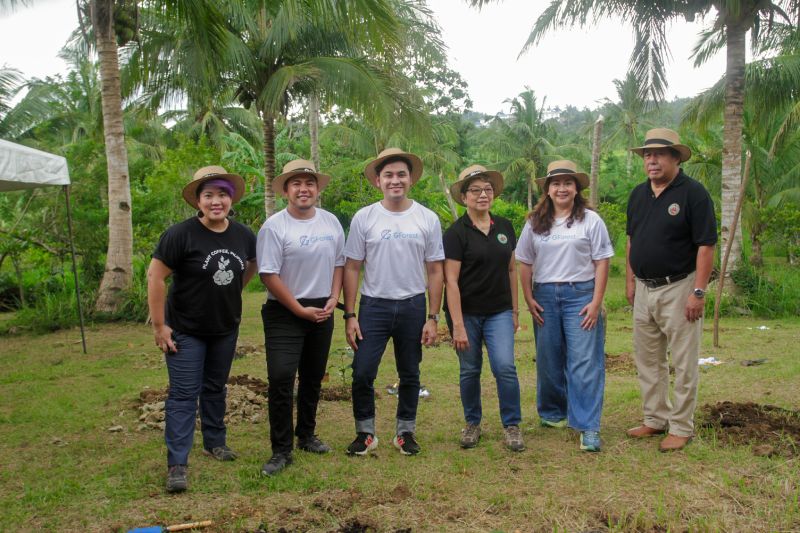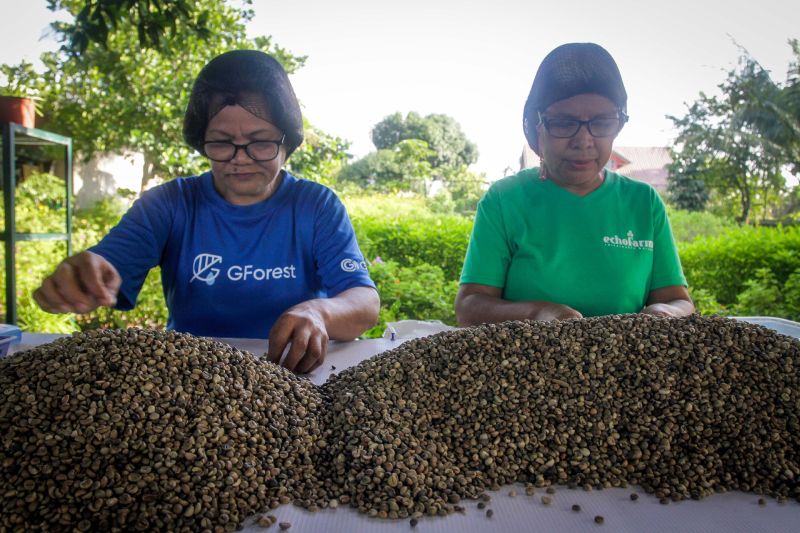GForest, Philippine Coffee Board partner to boost local coffee industry; over 200,000 coffee trees to flourish

MANILA, Philippines — A groundbreaking collaboration between GCash, through GForest, and the Philippine Coffee Board is poised to reshape the local coffee scene—offering a unique opportunity for individuals to actively contribute to sustainable coffee farming, as well as to support community livelihood while protecting the environment.
The joint agroforestry initiative aims to revitalize the local coffee sector through tree plantings and to assist local farmers and their families by providing the necessary capital to start planting coffee seedlings.
Last August 17 at the Philippine Coffee Board (PCBI) Technology Hub, GCash announced that the partnership will commence with the planting of 50,000 seedlings in identified areas in Benguet, Cavite, Iloilo, Davao and Basilan.
Over the next two years, the project will expand, adding 50,000 trees annually, resulting in over 200,000 coffee trees planted.

With a user base exceeding 14 million nationwide, GForest strategically taps into its vast network to seamlessly engage and enable its users to help via its digital platform.
According to Winsley Bangit, GCash head of New Businesses, for every tree planted by a user on the GForest feature on GCash, GForest will plant one actual coffee tree for free.
“GForest is the biggest reforestation platform in the Philippines, and we want to work with many partners so we don’t just provide a digital solution for cashless payments, but also help them build and protect their communities from different risks, and even bring potential improvement in their livelihoods,” Bangit told Philstar.com.
Bitter struggles in local coffee landscape
Coffee has been part of Filipinos’ everyday routine, so much so that coffee is now no longer just a morning drink, but a beverage for any time of the day.
Per the data cited by GForest, Philippines’ coffee consumption is one the highest in the world and the highest in ASEAN. However, local coffee harvests account for only 30% of the national consumption, and the majority is imported from neighboring countries.

PCBI president Chit Juan emphasized that there’s really a challenge on supply and a need for more trees to cater to the local demand.
“Kulang na kulang ang supply for our local demand. Ang challenge is kailangan natin ireplace ang old trees and plant new ones. Hindi madali na pagtanimin ang mga tao, that’s what we are addressing.”
Moreover, GForest and PCBI identified the lack of capital among small and backyard farmers as one of the key factors contributing to the low coffee production.
Farmers are often discouraged from cultivating coffee due to limited knowledge of tree cultivation and pest protection, as well as the challenging pricing from international exporters.
Brewing opportunities for farmers, coffee industry
Through the consumer-driven effort, GForest and PCBI aim to enable farmers and provide them capital to initiate their farms and create a new and sustainable source of livelihood,
The influence of the GForest movement reaches far beyond reforestation; it is also dedicated to improving the livelihoods of local communities through socio-economic empowerment.

In diverse GForest locations, local farmers are not only engaged and educated, but also compensated for their committed involvement in planting and nurturing trees over a period ranging from two to five years. Furthermore, these farmers are incentivized for their contribution to maintaining a robust tree survival rate.
With PCBI’s expertise, farmers will be equipped with a science-based approach which will then improve their productivity, leading to more produce, a bigger impact and income to the downstream value chain.
“There’s an end-to-end value chain as there are so many things that go into coffee consumption, from the farm to your cup,” Bangit shared. “As we support farmers, we make an even bigger impact because we support the entire value chain. The trees in turn become livelihood sources, it multiplies.”
Enabling consumer-driven impact with tech
Say you’re a heavy coffee drink, how many trees do you need to plant? PCBI president Chit Juan gave a rough estimate of around 12 trees a year.
“12 trees a year is around 24 kilos of coffee. Two kilos a month is about 200 cups of coffee, or around six cups a day.” she shared with Philstar.com. "‘Yong itatanim mo, ‘yon din ang iinumin mo.”

With GForest’s technology in the picture, planting coffee trees is within your thumb’s reach. Every time GCash users pay bills, send money, buy load and save digitally in-app, they earn green energy points that can be used to virtually plant trees on GForest—such as mangroves, narra, yakal, molave, coconut and now, coffee.
As of June 2023, GCash through GForest, has already planted 2.5 million actual trees, surpassing its initial target of planting 2.3 million trees by the end of 2023.
“With GForest, we’re brewing change, one coffee tree at a time. Join us in planting coffee trees and helping our coffee farmers—it’s more than just coffee, it’s a catalyst for positive change,” Bangit ended.
Editor’s Note: This #BrandSpace story is created with GCash. It is produced by the branded content team that is independent from our editorial newsroom.




















